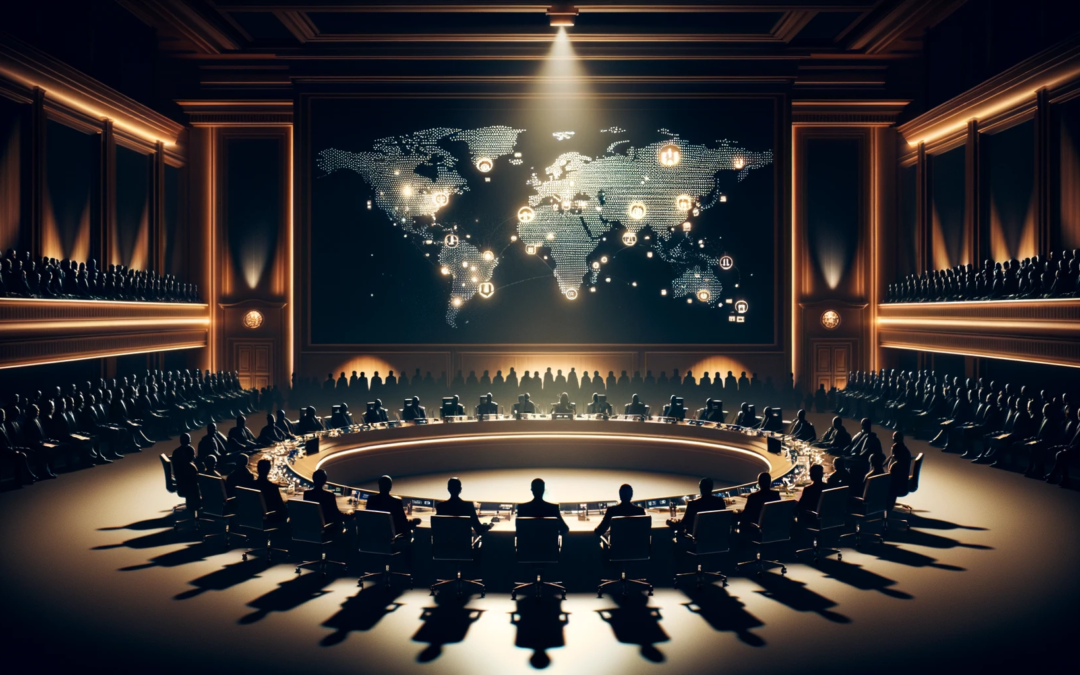In the intricate dance of global economics and politics, the New International Economic Order (NIEO) plays a pivotal role, defining the dynamics of power and control in the 21st century. At the heart of this order lies the 2024 Davos Summit, a gathering shrouded in secrecy, where the world’s elite chart the course of the global economy. This summit, and others like it, represent more than just meetings of minds; they are breeding grounds for the next generation of politicians, often groomed as young global leaders before ascending to positions of power.
The Essence of Davos and the Power Elite
The Davos Summit, under the aegis of the World Economic Forum, has long been a convergence point for the world’s most influential figures – CEOs, world leaders, and intellectuals. The 2024 Summit, however, stands out for its heightened secrecy, fueling concerns about the unchecked influence of the global elite on world affairs. This exclusivity is a hallmark of the NIEO, where decisions impacting billions are made by a select few.
The Mechanism of Control
Control in the NIEO is exerted through a combination of economic might and political influence. Major corporations, holding resources that rival or exceed those of nation-states, play a significant role in shaping global policies. This concentration of power in the hands of multinational entities and financial institutions leads to a scenario where the few dictate terms to the many.
Technology as a Tool of Power
In the digital age, the leverage of the powerful is magnified by technology. AI, big data, and the IoT are more than mere tools; they are instruments of influence and control. They enable a level of surveillance and data manipulation that can shape public opinion and decision-making processes, further cementing the power of the elite.
Governments and the Global Elite
The relationship between governments and the global elite is complex and often symbiotic. While governments are supposed to represent the will of the people, they frequently find themselves intertwined with corporate interests. This interconnection raises questions about the independence and integrity of political decisions, especially those affecting economic policies and regulatory frameworks.
The Impact on Global Society
The effects of this economic order are far-reaching. Income inequality, erosion of privacy, and environmental degradation are some of the visible consequences. Additionally, the marginalization of smaller nations in decision-making processes leads to a skewed global order, where the interests of the few override the collective needs of the many.
Grooming of Politicians as Global Leaders
An often-overlooked aspect of this order is the grooming of young politicians as global leaders. Programs like the Young Global Leaders of the World Economic Forum are designed to identify and nurture future leaders. These individuals, often handpicked from various sectors, receive exposure to global issues, networking opportunities, and mentorship from established figures. While these programs have the potential to foster enlightened leadership, they also raise concerns about the perpetuation of existing power structures and the molding of leaders to fit specific agendas.
Calls for Transparency and Reform
In response to these dynamics, there is a growing clamor for transparency and reform. Civil society organizations, activists, and some political figures advocate for greater openness in global economic forums and decision-making processes. They call for policies that prioritize public welfare over corporate profits, protect individual rights, and ensure a more equitable economic distribution.
Envisioning a New Path
The future of the NIEO hinges on finding a balance between economic progress and equitable governance. This entails strengthening international laws related to corporate accountability, enhancing the role of international organizations in global governance, and empowering civil society. Technologies that have been used as tools of control can also be repurposed to promote transparency, accountability, and democratic participation.
Conclusion
As the world grapples with the complexities of the New International Economic Order and events like the secretive 2024 Davos Summit, the grooming of politicians as young global leaders adds another layer to this intricate puzzle. The challenge lies in ensuring that this order evolves to reflect not just the interests of the few but the aspirations and needs of the many. The path forward is not just about reshaping policies and practices; it’s about reimagining the very essence of global leadership and economic governance.










